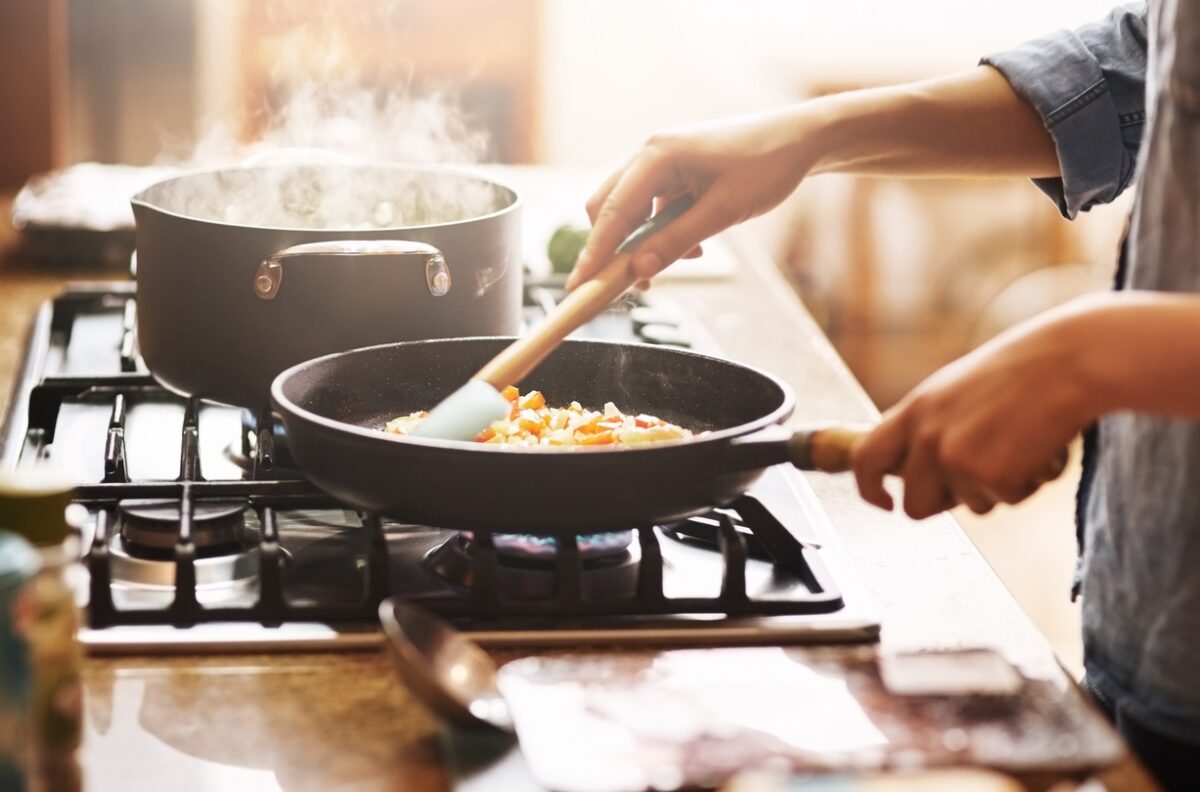10 cooking mistakes you’re probably making, and how to fix them like a chef

Avoid these common cooking mistakes for better cooking results.
Cooking is both an art and a science, and even the most experienced home chefs slip up sometimes. From overseasoning to ignoring the resting time for meat, small missteps can ruin even the best recipes. Here are 10 common cooking mistakes and expert-backed ways to avoid them for more flavorful, restaurant-quality meals at home.
1. Not Reading the Recipe First
Skipping the full read-through can lead to timing errors, missed ingredients, or overcooked food. Always read the entire recipe before starting, it helps you plan your steps, prep properly, and avoid last-minute stress.
2. Overcrowding the Pan
When you cram too many ingredients in one pan, heat can’t circulate evenly. This causes steaming instead of browning. Use a larger pan or cook in batches to get that perfect golden crust and rich flavor.
3. Using the Wrong Knife (or a Dull One)
A dull knife crushes rather than slices, making prep slower and more dangerous. Invest in a quality chef’s knife and sharpen it regularly. The right knife cuts cleanly, saves time, and improves presentation.
4. Ignoring Proper Seasoning
Under- or over-seasoning is one of the biggest cooking mistakes. Taste your food as you go and adjust gradually. Remember: salt enhances flavor, it shouldn’t dominate it. A squeeze of lemon or dash of vinegar can also brighten dull dishes.
5. Overcooking Meat
Overdone meat loses moisture and tenderness. Use a thermometer to cook proteins to their ideal temperature, and always let meat rest before cutting so juices redistribute evenly.
READ ALSO
10 Easy Meal Prep Ideas That Will Transform Your Workweek
8 Hydrating Foods That Boost Energy and Keep You Refreshed All Day!
6. Not Preheating the Pan or Oven
Cold pans make food stick and cook unevenly. Always preheat your oven and skillet, it ensures a sear instead of a soggy texture, especially for proteins and baked goods.
7. Using the Wrong Oil
Different oils have different smoke points. Olive oil, for instance, isn’t ideal for high-heat frying. Use canola or avocado oil for frying, and save olive oil for sautéing or finishing dishes.
8. Measuring Ingredients Incorrectly
Baking is precise, guesswork doesn’t work. Use measuring spoons and cups properly, leveling dry ingredients and measuring liquids at eye level for accuracy.
9. Ignoring Food Temperature
Putting cold food directly into hot oil or pans can lower the temperature, leading to uneven cooking. Let ingredients come to room temperature before cooking for consistent results.
10. Forgetting to Taste as You Go
Professional chefs constantly taste and adjust. Don’t wait until the end, sample as you cook to balance salt, acid, and texture. This small habit transforms good dishes into great ones.
Smart Cooking Starts with Awareness
Mastering the kitchen isn’t about fancy tools, it’s about awareness and attention to detail. By recognizing and fixing these common cooking mistakes, you’ll save time, waste less food, and consistently serve meals that impress.
FAQ: 10 Common Cooking Mistakes and How to Avoid Them
1. What are the most common mistakes beginners make in cooking?
Beginners often overcrowd pans, skip recipe steps, use dull knives, and underseason food. These small errors lead to uneven cooking and bland flavors.
2. How can I stop overcooking my food?
Use a kitchen thermometer and set timers. For meats, remove them a few degrees before the target temperature, they continue cooking as they rest.
3. Why do my dishes turn out bland?
You may not be seasoning throughout the cooking process. Add salt in layers, taste frequently, and balance flavors with acid (like lemon juice or vinegar).
4. Why does food stick to my pan?
Cold pans cause sticking. Preheat your pan properly before adding oil or ingredients, and avoid moving food too early while it’s searing.
5. How do I fix over-salted food?
Dilute the dish with unsalted ingredients, add a bit of cream, or balance the flavor with acid (like lemon juice or vinegar) to reduce saltiness.
6. What oils are best for high-heat cooking?
Choose oils with high smoke points such as canola, peanut, sunflower, or avocado oil for frying and sautéing.
7. Why is preheating the oven so important?
Preheating ensures even baking and prevents undercooked centers, especially for cakes, bread, and roasted vegetables.
8. How do chefs avoid cooking mistakes?
Chefs “mise en place”, they prepare ingredients, read recipes carefully, preheat properly, taste as they go, and never rush.

